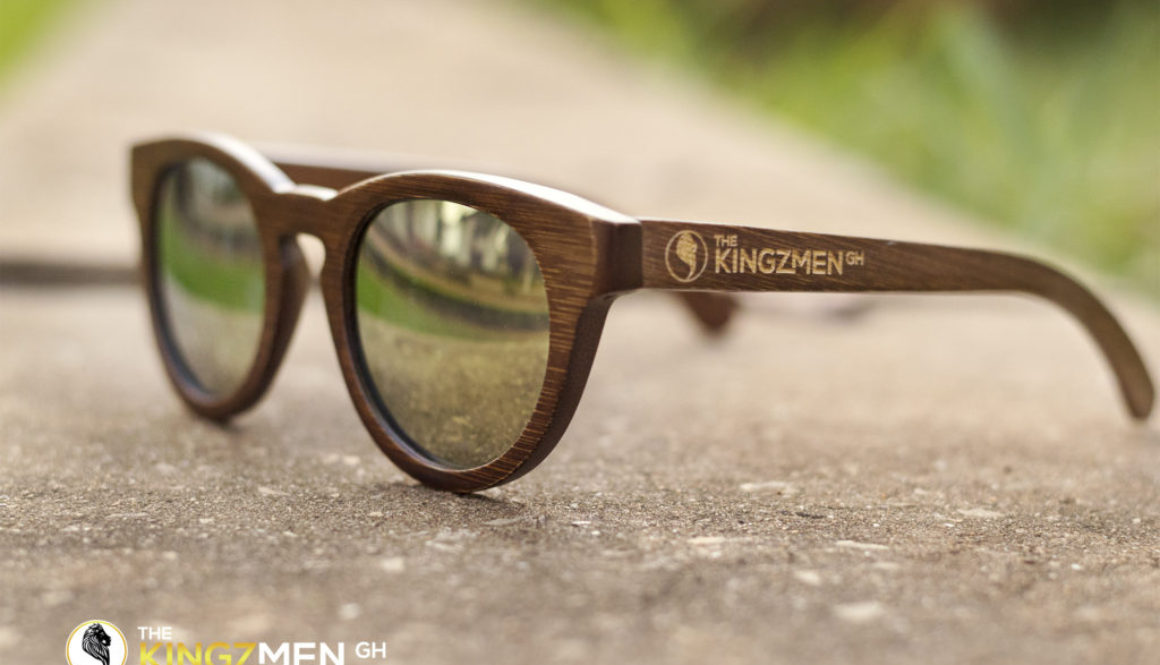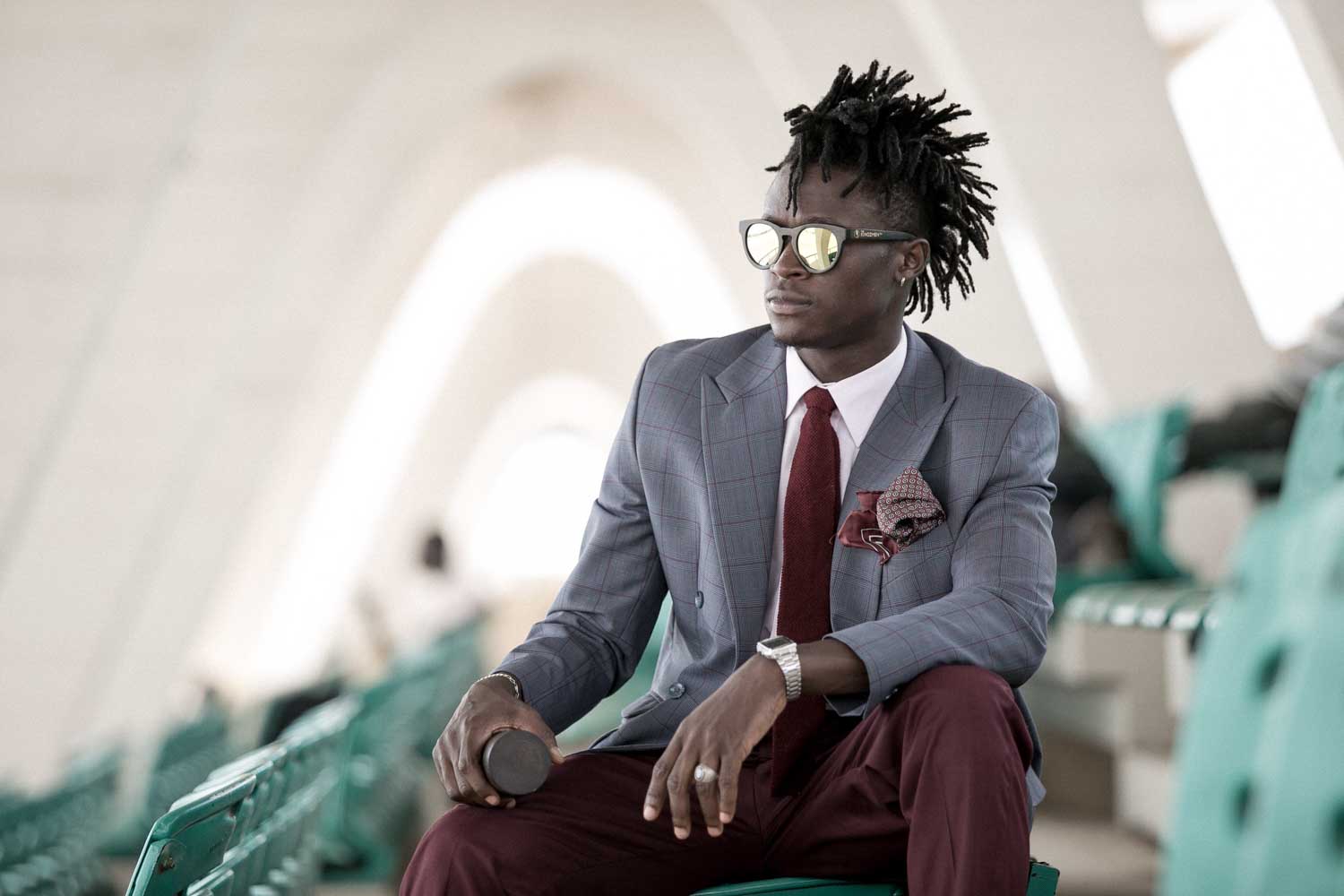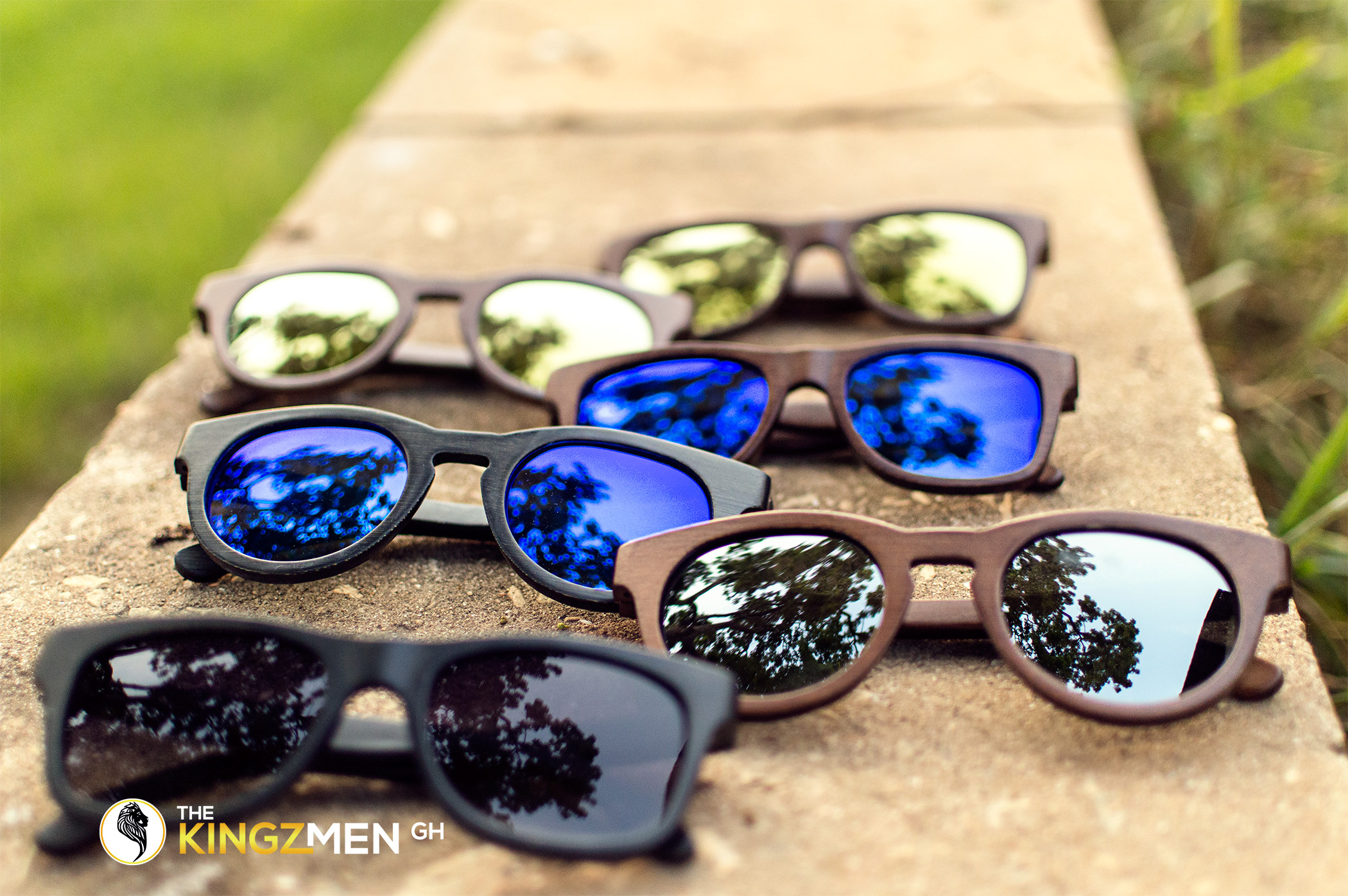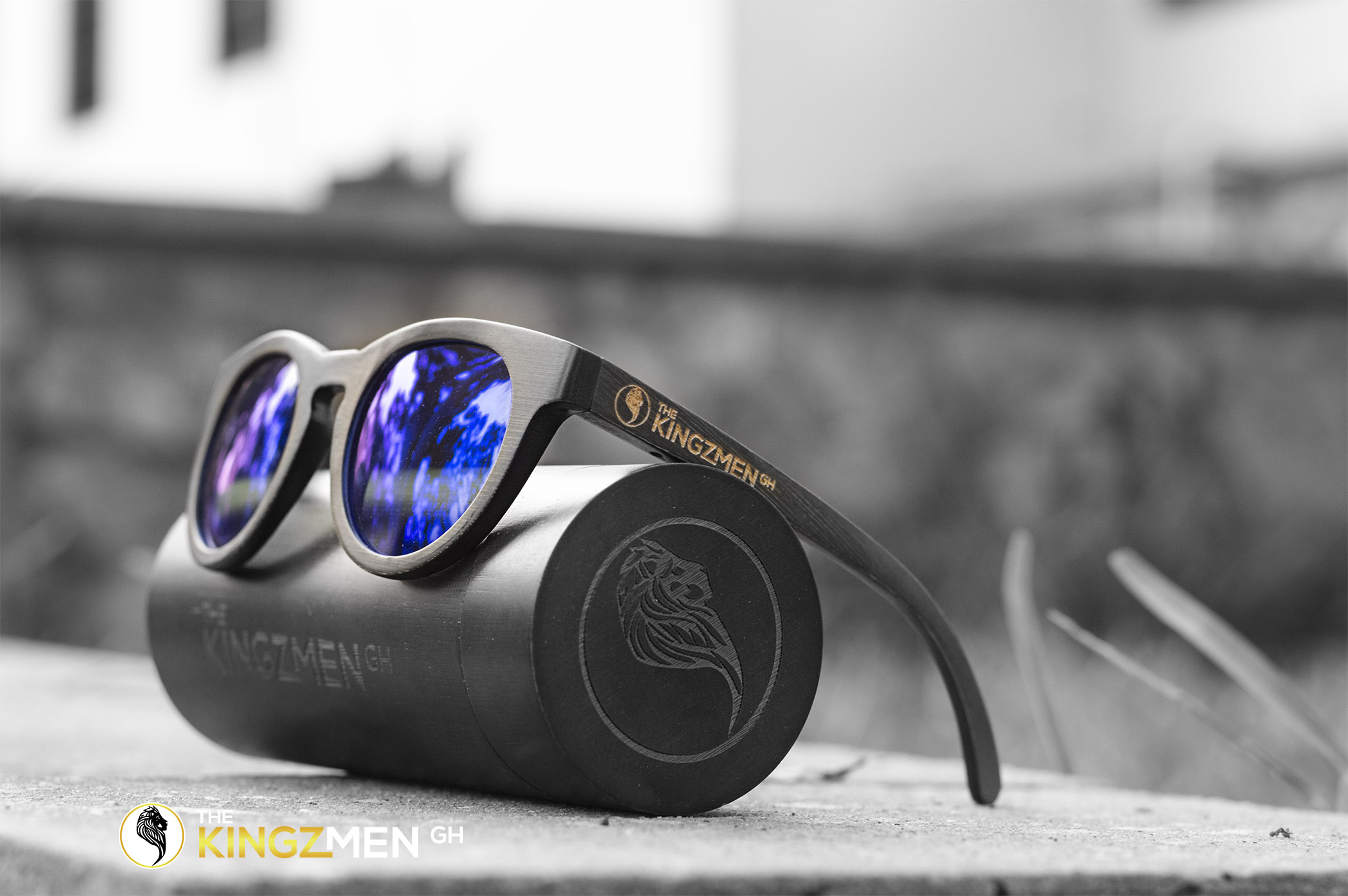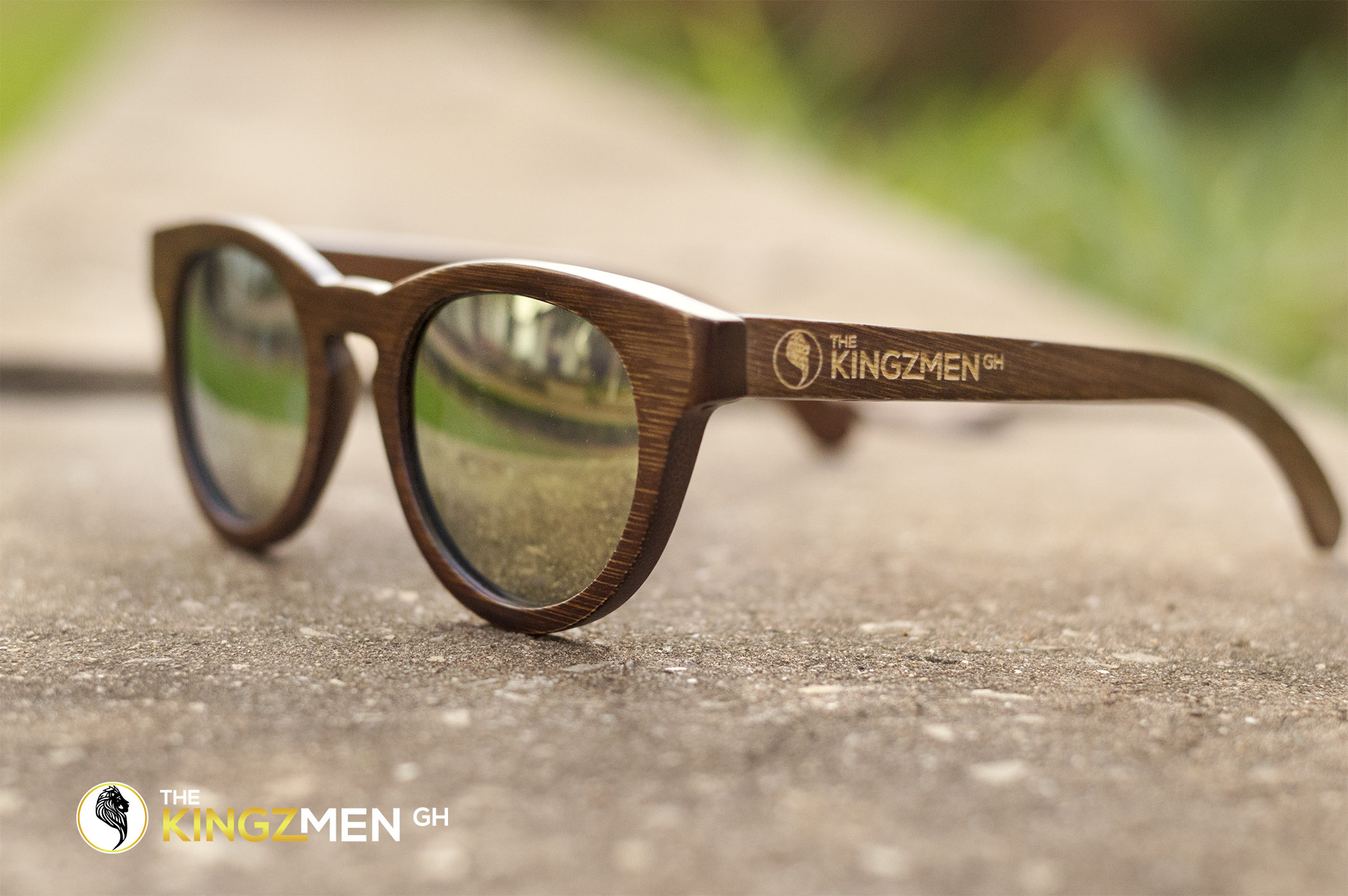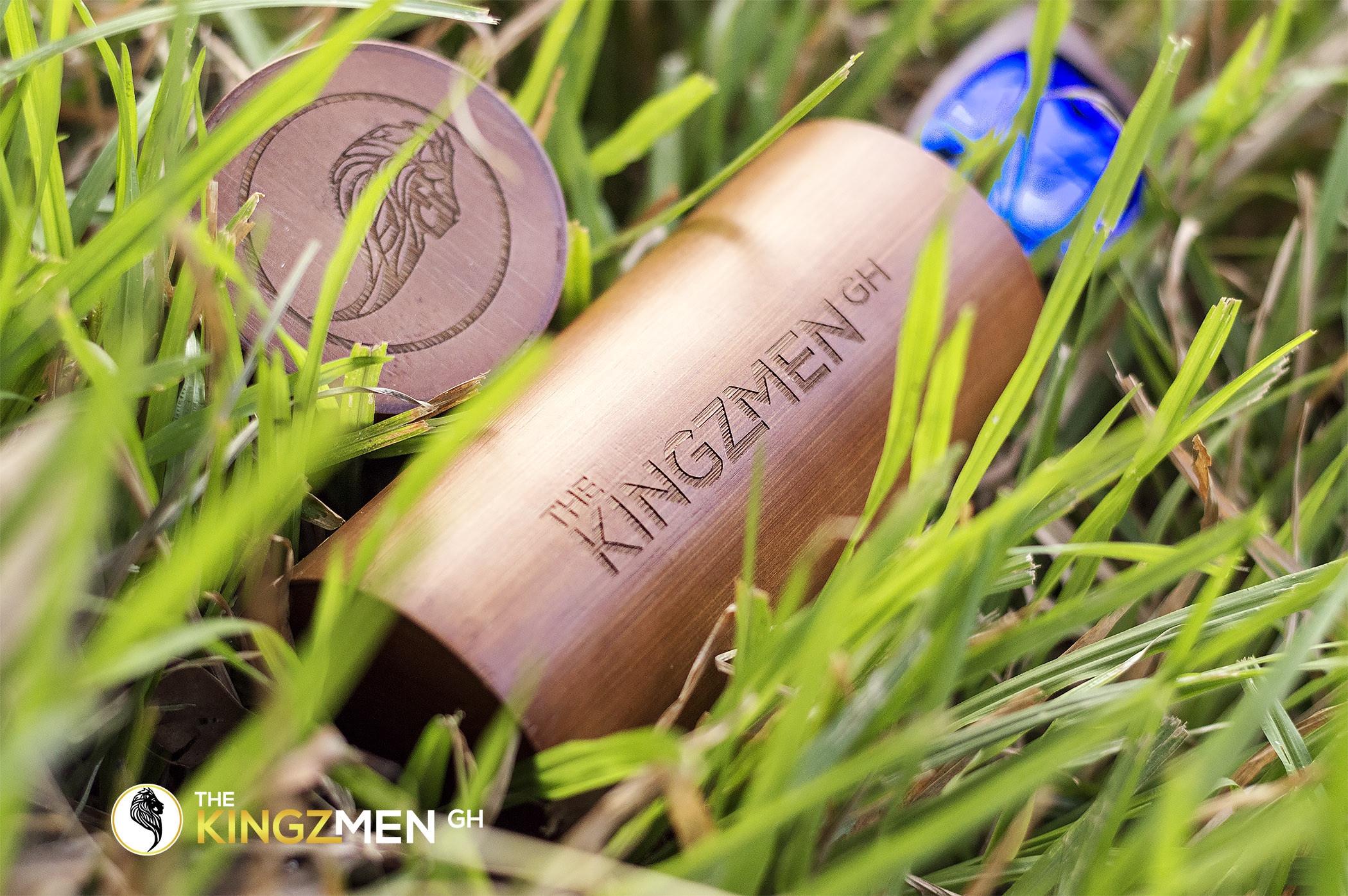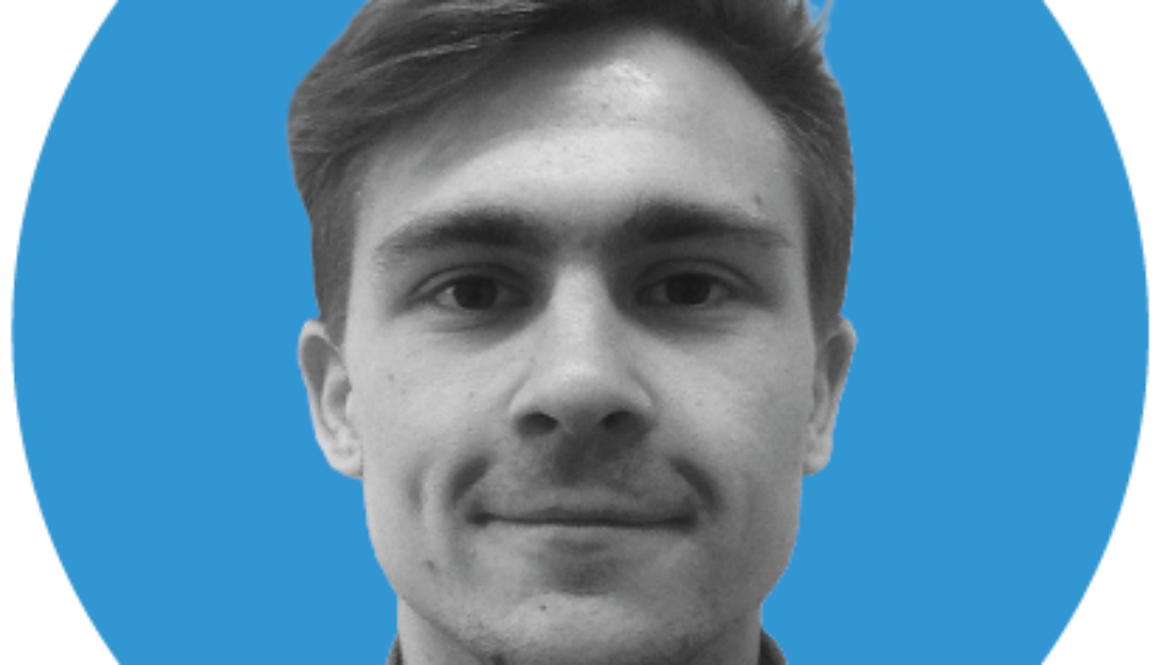Abel Ofoe-Osabutey, Founder of The Kingzmen GH
Challenges Worldwide are pleased to announce the success of one of our Alumni, Abel Ofoe-Osabutey.
Abel has successfully started a Bamboo Eyewear Business in his home country of Ghana. The Kingzmen Gh was born out of Abel’s undying interest in his sister’s eye defect which she has lived with from childhood.
By age four, Abel’s little sister could hardly open her eyes and struggled to see in the high rays of the sunlight and was deemed to be partially blind. As a result, she had to leave her regular schooling due to her inability to cope with class activities and the negative attention she received for her eye condition.
Inspired by this, Abel Ofoe-Osabutey, was motivated to do something innovative to help support the movement to prevent blindness amongst people living in Ghana, Africa and across the world. In the backseat of a Business class at the University of Ghana Business School, he conceived the idea to start an Eyewear Business aimed at solving one of the leading causes of blindness in Ghana and across the world, Cataract. Joining this with his passion to cause change in Ghana through innovative ways of job creation and creating better living standards, The Kingzmen Bamboo Eyewear was conceived.
However Abel didn’t start this business right after conceiving the idea. He wanted some advice from a creative genius in order to know what direction to take his business.
Fortunately, he was paired with a design expert, Izzy Housley during his ICS volunteer period under the supervision of Challenges Worldwide. After bouncing off ideas between each other over the period, Abel set out to begin his entrepreneurial journey.
His vision for the Eco-friendly Sunglasses is to help prevent cataracts one pair of sunglasses at a time while creating sustainable jobs through continuous innovation and cutting edge designs and con- cepts.He also believes in the vast potential of the African continent and seeks to use his brand to inspire individuals to join in exploring and promoting the continent by thinking differently and acting differently.
We caught up with Abel to find out how the his Challenges Worldwide placement supported him to start his business.
CW:Hi Abel, Thank you for taking the time to speak to us about your exciting new venture, The Kingzmen GH. Would you be kind enough to share with our readers some of your inspirations and goals for developing your sunglasses range so that we may inspire more young people to follow their dreams?
AO: It is really great to hear from you and it is quite amazing that i get to have a feature with Challenges Worldwide. I hope I will be able to inspire a lot more young people out there.
CW: I understand your inspiration comes from your sisters eye condition. What was your reason for deciding to start an eyewear brand to help tackle this problem?
AO: My main inspiration for starting a business first of all was the reason that I have had a strong urge to be a business owner for a while. So in search of things I was pas- sionate about that I could transform into a business, I decided to focus on my sister’s eye defect and make a business aimed at helping to prevent people from suffering blindness. I did some research around it and discovered that one of the main causes of blindness in Ghana was Cataract and one of the ways to prevent it was by shielding your eyes from the sun. Hence a sunglasses business. Cataract usually occurs in older people in Ghana because they have exposed their eyes to the sun over a long period of time growing up. In my view, its always best to prevent it before it occurs by wearing sunglasses as often as possible.
CW: How did you come up with the design of the glasses?
AO: My challenges team mate, Izzy Housley was very helpful in that area. Whenever I come up with a concept in my mind I tell her about it and using her design expertise, she put together something. Generally, the designs have been inspired by popular sun- glasses we see people wear around just to ensure that they are trendy with our own special touch of difference.
CW: What are the reasons for using Bamboo?
AO:Bamboo was chosen as a result of its strength. In Ghana, it’s used as beams when building storey buildings as a result of its strength and durability. It’s also a plant that grows very quickly compared to wood hence making it a more sustainable eco-friendly source for us. The choice to use bamboo particular came to mind when I read the bam- boo bike story from Kumasi which inspired me to use bamboo for my designs. Its worth adding that, the business I worked with was a family oriented and one of the siblings in the family happened to be involved in a similar idea where she made glasses from wood and sold only to her friends. So seeing her designs also helped bring my bamboo concept into perspective.
CW: Do you think the Challenges Worldwide ICS programme helped you to be able to develop this business?
AO:Challenges was very instrumental in my success because if not for Challenges I may not have met Izzy and I may have been stuck or delayed at a point in my business. She has been quite helpful and am quite grateful for all the things she thought me with regards to design while we were on the programme. She introduced me to some email template platforms for communicating with customers and suppliers which have been quite helpful. Her insight of how to sell via social media in order to build a presence have also been useful in building our page. My knowledge in negotiations from CMI are also helping me to make some contact with retail outlets which seem positive to take on my product.
Finally, what are your long term goals for the business?
Our vision as a brand is to inspire focuses on cataract prevention, one eyewear at a time while creating sustainable jobs through continuous innovation and cutting edge designs and concepts. We also believe in the vast potential of the African continent and seek to inspire individuals to join us in exploring and promoting the African continent using its indigenous products.
You can find out more about The Kingzmen GH
by following them online:
Instagram: @thekingzmengh
https://www.instagram.com/thekingzmengh/
Facebook: The Kingzmen GH
https://www.facebook.com/TheKingsMenGh/?fref=ts
Storefoundry online store:
thekingzmengh.storefoundry.com

